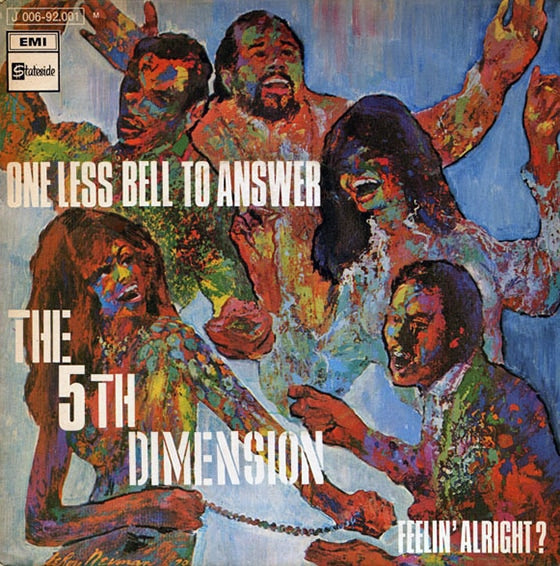The Burt Bacharach and Hal David songwriting machine was running full speed ahead through the 1960s. While Dionne Warwick was the singer of many of their best tunes, there were plenty of other artists through the 1960s and early 1970s who made their mark on songs that Bacharach and David had composed. This installment looks at a handful of notable recordings.
If there is one tune in Bacharach’s catalog that he claims as his overall favorite, “Alfie” is it, and he has mentioned this on multiple occasions. This version from 1966 was a hit by Cilla Black in the UK.
This 1970 Bacharach/David tune about suburban flight, “Everybody’s Out of Town” by B.J. Thomas, was given a whimsical turn with its arrangement, featuring a tuba and banjo beneath the sophisticated lyrics. B.J. Thomas hit Number One with “Raindrops Keep Falling on my Head,” and also covered a handful of other Bacharach/David songs, including “Send My Picture to Scranton, PA” and “Long Ago Tomorrow.”
Manfred Mann took the recording session for “My Little Red Book” in stride. Because he wasn’t playing the strident piano chords to Bacharach’s satisfaction, the composer sat with Mann at the piano, banging out the piece together until it matched what Bacharach was hearing in his head. No hard feelings, though, and the tune would appear in the soundtrack for the 1965 film, What’s New, Pussycat?
Dionne Warwick had already sung Hal David’s “message” lyric, “Windows of the World,” a tune of concern about the Vietnam War. “What the World Needs Now” is more direct in its approach to anti-war sentiment, with Jackie DeShannon recording the definitive version. It was Grammy-nominated and inducted into the Grammy Hall of Fame.
“One Less Bell to Answer” had quite a few cover versions, but the 5th Dimension did one of the finest renditions with their jazzy take on the tune.
So, what happens when you attempt to make a movie adaption of a Broadway stage production, which itself was an adaption of a very popular film? You get an unused song, “Seconds.” Although a movie adaptation of Promises, Promises never got produced, Bacharach, having split from Hal David at this point, paired with Neil Simon to write tunes for the possible film. This recording by Gladys Knight & The Pips appeared on their 1974 album I Feel A Song, with the arrangement by Bacharach.
Trini Lopez of “Lemon Tree” and “If I Had a Hammer” fame cut this Bacharach/David tune, “Made in Paris,” in 1965.
Here is another standout: Jackie DeShannon’s swinging take on “So Long Johnny” from her album Are You Ready For This? DeShannon has covered a handful of other Bacharach/David songs, and they are well worth seeking out.
And here is a Bacharach/David tune that never became anything more than a minor hit: “To Wait for Love.” Given all the versions I’ve heard (including Tony Orlando, Jackie DeShannon, Tom Jones, Herb Alpert, Jay and the Americans, and others), this recording from the mid-1960s is no better or worse than the others, but remained unreleased until 2013, when Columbia Records released recording sessions that Patti Page made for the label that were never used on singles or albums. She made her mark on the charts in the 1950s with novelty tunes like “How Much is That Doggie In the Window?” for Mercury, but at Columbia, she entered a second and less successful phase singing more serious material.
I’ll leave you with a curiosity from 1969, back in the era when everyone from Wendy Carlos to Isao Tomita were “switching on” and exploring making music via Moog and other synthesizers. Here is Christopher Scott, from the album Switched-On Bacharach (no, I couldn’t make this up!), with “What’s New, Pussycat?”
We’ve covered many recordings penned by the Burt Bacharach and Hal David songwriting team, but what about Bacharach’s work beyond his split with Hal David in the mid 70s? We will look at newer recordings by Bacharach in our next installment.



